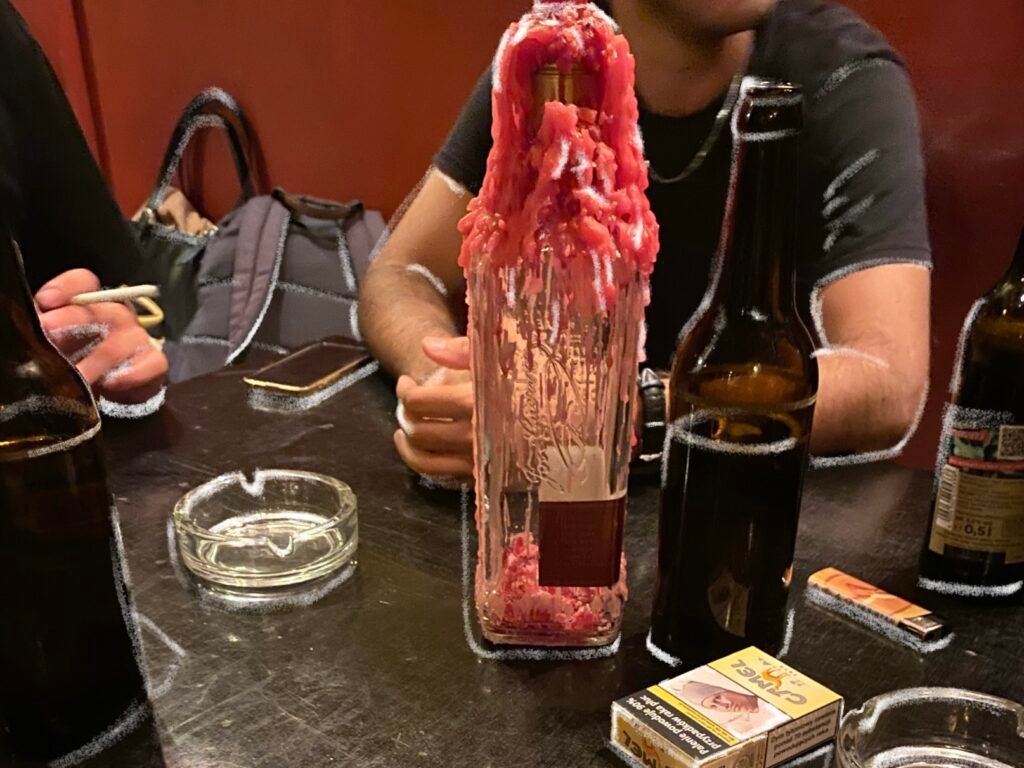Understanding Hangxiety

Picture this: Your head is pounding, your palms sweaty and your stomach feels like it was turned inside out. You might have had one too many drinks last night, and as you slowly regain consciousness, it hits you – just like the blinding light trying to sneak through the blinds.
You frantically replay the night before over and over again in your head, second-, third-, and fourth guessing what you said, if you can even remember what you said in the first place. This daunting sensation leaves you in an impending sense of panic, utterly confused, and out of character.
This is hangxiety, short for hangover anxiety. It is a colloquial term that refers to the anxiety experienced during a hangover following alcohol consumption. For quite a long time, I myself was unaware of the fact that hangovers can also have psychological symptoms. But turns out they do, and they’re more common than you might think.
Why does hangxiety happen
The term ‘hangxiety’ has seen a recent renaissance, but in order to understand why alcohol has a soothing effect on people with anxiety, it’s worth looking at what happens in the brain. In the brain, there is neurotransmitters that enhance, and others that reduce, neurotransmission, the transmission of an electric impulse between two synapses. If this transmission is enhanced, the reaction of the body is increased, a vivid example for this is drug use: drugs make the consumer “happier” or “carefree”, which can be explained by the direct enhancement of specific neurotransmitters.
Alcohol on the other side, acts very similarly to the brain’s main inhibitory neurotransmitter: GABA. When GABA neurotransmission is enhanced through alcohol, the result is a general decrease in neurotransmission.
It is particularly interesting to see what study have shown regarding the amygdala, a region responsible for emotional regulation. Alcohol intoxication leads to inhibited amygdala response, and furthermore to decreased behavioural responding, in other words, less anxiety. While anxiety is therefore reduced while drinking, it tends to be increased during the with-drawl, or ‘hangover’.
Though there are more theories about why hangxiety occurs. One of them explaining how alcohol consumptions result in poor sleep, and therefore a stronger predisposition to experience anxiety in the first place. Another one states
The causality of drinking culture
As a part of Generation Z, or Gen Z for short, studies have equally suggested how the emergence of COVID-19 played a role in young people’s motivation to drink. During the quarantine period, when social contacts and activities were significantly limited due to many restrictions, the consumption of alcohol was one of the only pastimes that were still possible, and ultimately something that could easily develop into a habit.
But there is even more causality around drinking. There is a certain social expectation that alcohol is consumed at least occasionally in social contexts, after all, we call it ‘social drinking for a reason’ for a very good reason. Many people report finding it easier to engage in conversations with others and feel less uptight, a sensation that most crave after a long week acting tough and serious at their jobs. Not to get too ahead of myself here, but the fact that Gen Z was isolated during a pivotal time of their lives, one where they should’ve socialised almost non-stop, might have led to lasting difficulties, even years later, when it comes to integrating into groups and starting conversations. It therefore comes in quite conveniently and as no surprise that alcohol, which reduces shyness and makes conversations flow more easily, has a become a convenient, and often relied-upon tool, contributing to a higher alcohol consumption in this generation overall.
The only truly effective way to avoid hangxiety is to not drink at all. Realistically though, most people aren’t ready to give it up completely. So, it’s always a good idea to tackle the physical symptoms of a hangover first, as it makes it easier to manage the anxiety. If you do drink and experience hangxiety, here are a few things that can help:
- Hydrate throughout the night to avoid severe intoxication, which can lead to losing control and memory lapses.
- Stick with trusted friends throughout the night, their presence will be grounding and reassuring later.
- Practice mindfulness.
- Rest. Accept the feeling. Remind yourself that it will pass.